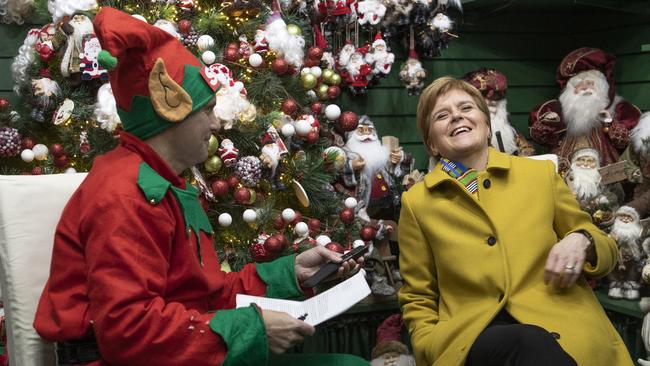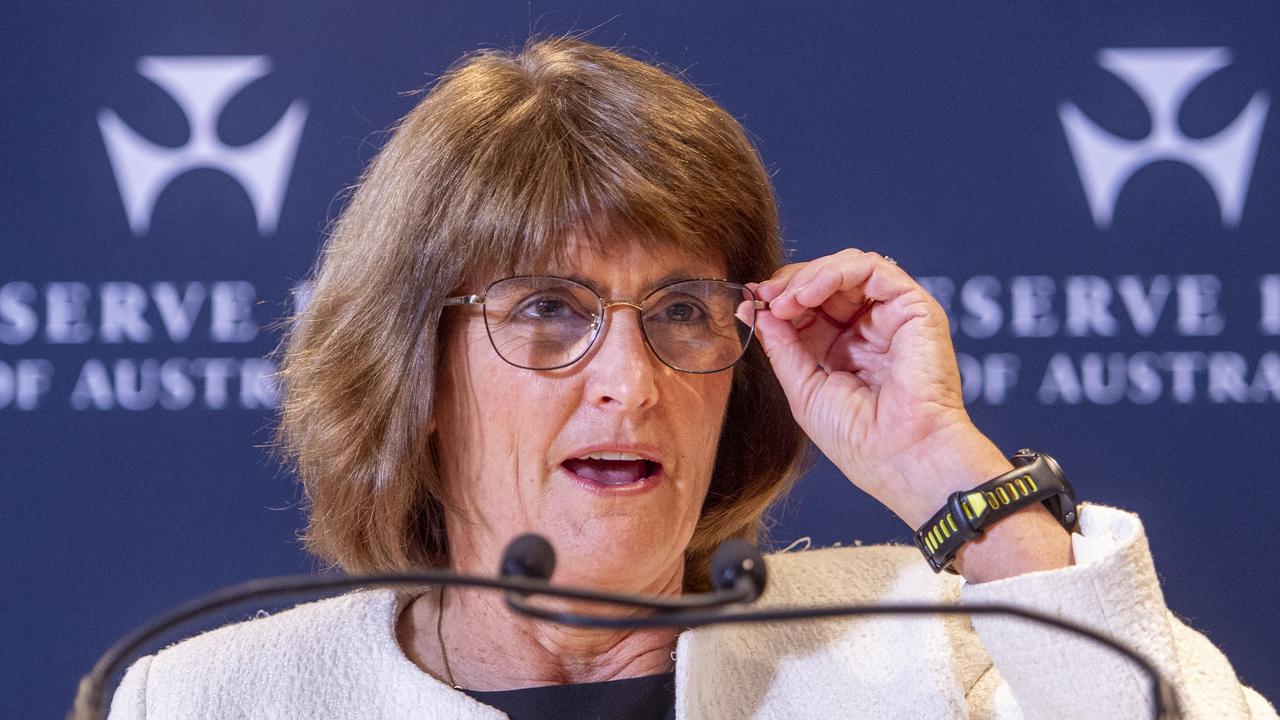British election shapes as a proxy independence vote for Scotland
Scotland’s electoral landscape has transformed next Thursday’s British general election into a proxy vote on independence.

While the rest of Britain is arguing ahead of next week’s elections about whether to leave the EU, in the town of Perth on the silvery waters of the River Tay, another union is in question: Scotland’s 300-year-old tie to England.
The idea of leaving the UK still divides Scotland after the last independence referendum in 2014, which the “Yes” camp lost, 55 per cent to 45 per cent. Since then, the Scottish National Party has seen its support swell, lifted in large part by Scots’ unhappiness with the outcome of the 2016 referendum on the UK as a whole leaving the EU, in which nearly two-thirds of Scots voted to stay.
Now Scotland’s electoral landscape has transformed next Thursday’s general election into a proxy vote on independence. SNP leader Nicola Sturgeon is presenting a vote for her party as a vote to escape the uncertainties of Brexit as she pushes for a rerun on splitting from Britain.
Meanwhile, Scots who favour sticking with the UK have few places to go besides the pro-union Conservative Party. That’s because if the Conservatives don’t win, the most likely alternative would be a government led by the Labour Party, shored up by the SNP. Though Labour itself is pro-union, the SNP would be likely to demand another independence referendum as the price of its support.
Opinion polls suggest British Prime Minister Boris Johnson’s Conservatives might hold on to most of the 13 Scottish seats that helped the party form a minority government in 2017. That would aid Mr Johnson in his bid to return to 10 Downing Street, where he has vowed to deny Scotland a second vote on independence.
“Brexit has condensed a lot of the debate on independence,” said Pete Wishart, the SNP incumbent in Perth, a bellwether town of about 50,000 people where Scotland’s ancient kings were once crowned.
Mr Wishart, a musician who toured the world with Scottish rock bands Big Country and Runrig, scraped by with a majority of just 21 over the Conservatives in the 2017 election. It will be another close race this time, said Mr Wishart, 57.
But he said he expected to win his seat again. “It is turning into a referendum on Scotland’s future, and we’ve been ignored and disrespected so much that more and more people are coming across to independence,” he said. “They’ve not all completed the journey, but they’re coming.”
The vote has a similar cast across Scotland, from the rolling farmland near the English border to the cities of Glasgow and Edinburgh and north through the hills and glens of the Highlands. The prospect of a Conservative government pulling Scotland out of the EU against its wishes appears to be driving more voters towards the SNP.
A recent survey conducted by the pollster YouGov forecast the SNP would expand its haul of the 59 seats being contested in Scotland to 43 from 35 currently. The Conservatives are forecast to pick up the bulk of the rest — a dozen seats, perhaps, after a collapse in support for the pro-union Labour Party over the past decade.
Meanwhile, some other polls consistently indicate growing support for independence, with some showing an even 50-50 split or a slight majority in favour.
“You are either in the independence camp or you want to keep the union,” said Conservative candidate Angus Forbes, handing out fliers to shoppers in Perth. “What we find is that those people who might have voted for another party in the past are coming to us to keep Scotland in the UK.”
The tension is likely to deepen in the run-up to the next elections to the Scottish Parliament in Edinburgh, in 2021, where the SNP holds 48 per cent of the seats. It will attempt to secure an absolute majority and demand a referendum from London. Any vote needs the approval of the parliament in Westminster, however, and Mr Johnson has said he would not give it.
The independence question is so polarising that some prominent Scottish figures in the Labour Party are urging supporters to hold their noses and vote Conservative to keep Scotland British.
The contest is keenly felt in knife-edge constituencies such as Stirling and Perth, where a mix of medieval town centres, public housing and rich farmlands make them microcosms of the country.
In Stirling, Scotland’s ancient capital, the SNP’s Alyn Smith is attempting to overturn a razor-thin deficit of 148 votes and capture the seat for his party. “Unionism has traditionally been strong here,” Mr Smith said. “If we take Stirling, it will be very telling about where the country as a whole is going.”
The race in Perth could be closer still. Peter Bruce, 66, from the nearby farming village of Scone, said he expects many of the region’s farmers to side with the Conservatives, though he himself plans to vote for the SNP.
“There are lots of smaller countries in Europe that work together well and there’s no reason we can’t do it too,” he said. “With Brexit, I feel we are shackled to a corpse. England has changed and we can do better on our own.”
Teacher Melanie Elmer, 41, agreed: “It’s really down to whether we can have another independence referendum. I voted ‘yes’ last time and I would do it again.”
Others, tired of referendums and apprehensive of the changes an independent Scotland would bring, say they will vote accordingly. “In the past I voted Labour but I think it’s important to keep the union and I’ll be voting Conservative this time, hard though it is,” said Neil Brown, an electrician.
The Wall Street Journal


